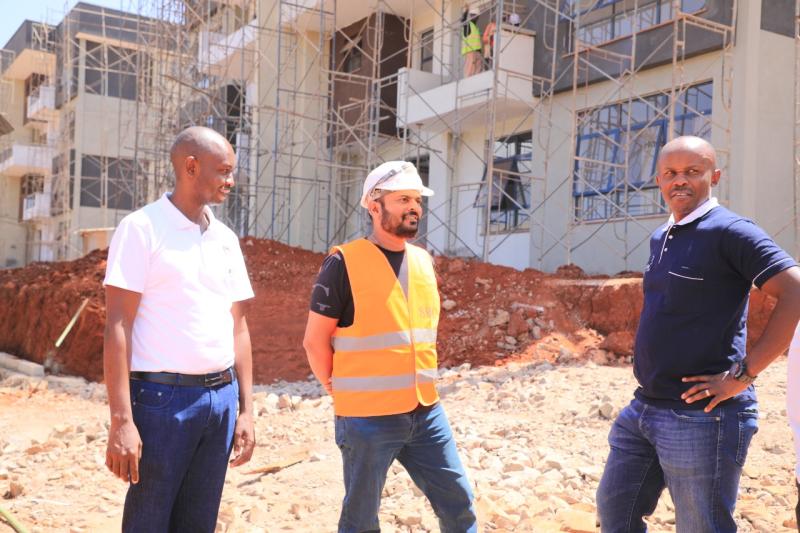×
The Standard e-Paper
Stay Informed, Even Offline

Kenneth Mbae (in white polo-shirt) Managing Director Centum Real Estate and James Mworia, CEO of Centum Investment (blue polo shirt) during a construction inspection visit of Loft Residences at Two Rivers Development [Courtesy]
Few have handled multi-billion transactions before hitting age 35. Mr Kenneth Mbae is among these few.